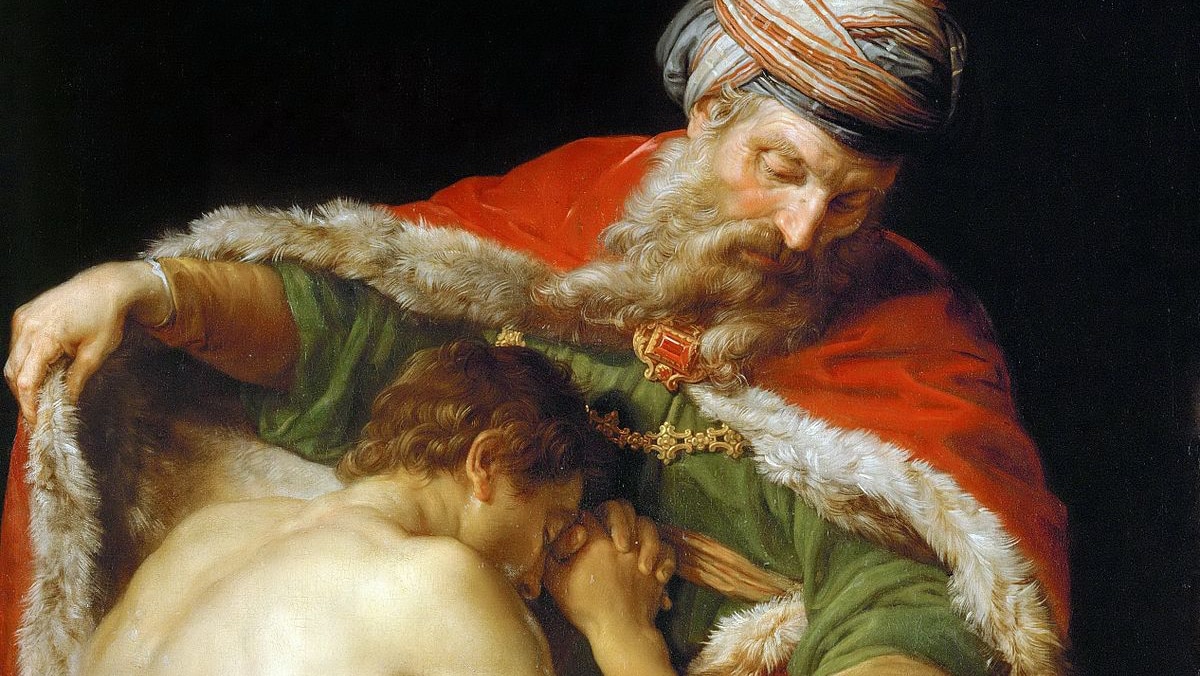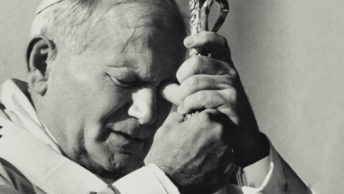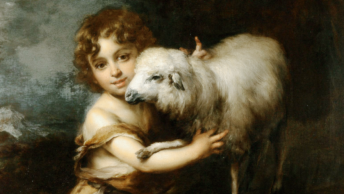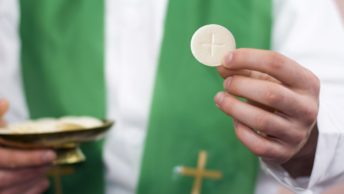Then the celebration began. Luke 15:24
Our three readings for the Fourth Sunday of Lent are about celebrations (Joshua 5:9-12; 2 Corinthians 5:17-21; Luke 15:1-3, 11-32).
Hence, today too, we shall cast all our anxieties onto the Lord who cares for us and be ready to celebrate THE Celebration of all celebrations, the Eucharist.
We cannot forget that every time the Gospel speaks of celebrations and eating, it is always talking about the Eucharist. Now, a good question must be: “what are we called to celebrate on the Lord’s Day?
The three readings stress three different aspects of the same celebration of the Eucharist.
Looking at our first reading (Joshua), from our perspective as members of God’s New Israel (the Church), it is a communal representation of the Passover of the Lord Jesus, the Lamb of God who was slain for our sake, but who lives forever.
Our second reading from the Second Letter to the Corinthians leads us to appreciate, as much as it is humanly possible, the deepest reason why each Eucharist should be an outburst of irresistible joy. Our condition as sinners was such that the Father had to make his only Son Jesus become the only thing that God the Father hates, SIN, so that, in his Son’s Blood, we could be reconciled and become the righteousness of God in him. 2 Corinthians 5:21.
Combining the messages of these first two readings, we can say that we celebrate the freedom from the slavery of sin attained for us by the Blood of the Paschal Lamb so that we can continue our journey to the Promised Land with renewed hope.
In the Gospel passage (from Luke), we celebrate a most comforting effect of the sacrifice of the Paschal Lamb: our return into the warmth and safety of God’s home around the same Table.
However, a celebration is not a celebration if it is vague and general. Our Eucharistic Celebration can be the Celebration of all celebrations only if we are aware of what a tragedy each sin is and we appreciate the immeasurable price the Father had to pay in the Blood of his Son Jesus.
Yet, for a variety of reasons, we are not in a celebratory mood every time we gather to do Eucharist. Actually, the opposite might be true. We might gather also out of habit; or because we have to; because there is a precept of the Catholic Church about this obligation. But this would not make much sense: to be forced to celebrate? Even our body language would betray our unwillingness!
A list of those eager to celebrate with abandonment includes: the younger son, who owns up to his mistakes; misses his home; cannot live any more on the wretched food of the cold, distant land of exile and needs again the warmth of his Dad’s embrace. The list includes sinners of all sorts, provided that they are determined to make a clean cut with their past, tax collectors, publicans, prostitutes, the outcast, the marginalized, all those whom Jesus seeks out and with whom he deliberately chooses, to celebrate, i.e., to do Eucharist.
And here is a list of all those who are not in a celebratory mood: it includes the older son, who is so filled with self-righteousness and resentment that he denies having a father (I served you all these years) and denies also having a younger brother (this son of yours). Those who join him in refusing to celebrate are the scribes and Pharisees, already resenting that Jesus does Eucharist with obvious sinners, tax collectors and harlots.
On this list are also all those who live the delusion of being in a position to earn their invitation around the Table of the Lord. This sad list has, as well, all the self-righteous, those who, having minimized their past transgressions, afford themselves the luxury of looking down on obvious transgressors.
For the last 50 years, my mission has been similar to Paul’s as shown in his Second Letter to the Corinthians. With increased insistence, as I became more aware of the tragedy of each of my sins, big and not-so-big alike, in these 50 years I have been urging my brothers and sisters to be on the list of those ready to celebrate. At the same time, this effort of mine has been equally visible in trying to convince any of those on the other list to join the first celebratory group. And whenever I am not in a celebratory mood, myself, and I risk turning a Eucharistic Celebration into a routine church service, I try to relive in my mind how strikingly different our Heavenly Father is from any other god by the way Jesus portraits him in this very familiar parable.
In other religions, a similarly offended deity, without hesitation, would have struck dead the wayward son, regardless of his apology and rehearsed speech of regret. Our heavenly Father, instead, is so driven by insane love for us that he waits anxiously for our return; he tosses aside his dignity to run towards us; he interrupts our expressions of regret; and restores us fully to our former status as his adopted children.
But there are other reasons for our Eucharistic Celebrations: Habitually, in our many wants we plead with God prayerfully for favors and graces. However, in this parable, Jesus informs us that our Father so desires to have all his children joyously seated around the same Table that it is HE who tosses aside his self-worth once more to plead with those among us who “slave” for him in fear, because they are tragically unaware that all, which the Father has, is truly theirs already!
He who did not spare his own Son but handed him over for us all, how will he not also give us everything else along with him? Romans 8:32
Once this reality is etched in the back of our mind, we have even more reasons for celebrating wholeheartedly every Eucharist left in our earthly life as a foretaste of the heavenly, endless Supper of the Lamb.








